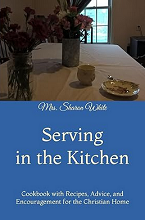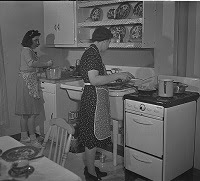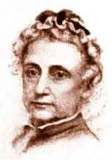I have a collection of vintage lessons for homemakers, from a few sources. These are informative, encouraging and inspiring. Enjoy!
1. "Gentleness, not partial and temporary, but universal and regular, should pervade her conduct; for where such a spirit is habitually manifested, it not only delights her children, but makes her domestics attentive and respectful; her visitors are also pleased by it, and their happiness is increased." (a)
2. "Ladies could be spotted a block away, by the presence of gloves." (b)
3. "Early rising is one of the most essential qualities which enter into good Household Management, as it is not only the parent of health, but of innumerable other advantages. Indeed, when a mistress is an early riser, it is almost certain that her house will be orderly and well-managed." (a)
4. "Speaking one's mind is an extravagance, which has ruined many a person." (b)
5. "In conversation, trifling occurrences, such as small disappointments, petty annoyances, and other every-day incidents, should never be mentioned to your friends." (a)
6. "Bread-making can be cultivated to any extent as a fine art, and the various kinds of biscuits, tea-rusks, twists, and rolls, into which bread may be made, are much better worth a housekeeper's ambition than the getting-up of rich and expensive cake or confections." (c)
7. "Charity and benevolence are duties which a mistress owes to herself as well as to her fellow-creatures; and there is scarcely any income so small, but something may be spared from it, even if it be but the widow's mite." (a)
8. "The tea kettle is as much an English institution as aristocracy or the Prayer Book; and when one wants to know exactly how tea should be made, one has only to ask how a fine old English housekeeper makes it. The first article of her faith is that the water must not merely be hot, not merely have boiled a few moments since, but be actually boiling at the moment it touches the tea. . . Tea making belongs to the drawing room, and high-born ladies preside at 'the bubbling and loud-hissing urn,' and see that all due rites and solemnities are properly performed - that the cups are hot, and that the infused tea waits the exact time before the libations commence." (c)
9. "I know some houses in which sharp, angry tones resound from morning till night, and the influence is as contagious as measles and much more to be dreaded in a household. The children catch it and it lasts for life. An incurable disease. (b)
10. "The true economy of housekeeping is simply the art of gathering up all the fragments, so that nothing be lost. I mean fragments of time, as well as materials. Nothing should be thrown away so long as it is possible to make any use of it, however trifling that use may be; and whatever be the size of a family, every member should be employed either in earning or saving money." (d)
(a) Mrs. Isabella Beeton, 1859
(b) "Keeping Hearth and Home in Old Massachusetts" compiled and edited by Carol Padgett
(c) Harriet Beecher Stowe, 1869
(d) The American Frugal Housewife, 1883
Blessings,
Mrs. White
- To find out more about this blog, or Mrs. White, please visit our About page. -
For happiness and cheer in the kitchen:
Mrs. White's old fashioned cookbook focuses on serving meals and setting the table in a humble home.
"Serving in the Kitchen: Cookbook with Recipes, Advice, and Encouragement for the Christian Home"
152 pages, paperback



























4 comments:
Wonderful thoughts! Thank you.
thanks for sharing those :-)
I found the Stowe quotes interesting. Jean Fritz-author of biographies for children- has an interesting biography of the Beecher family. I use to have many books but gave most away in my homeschool give-away box but I can't give away Uncle Tom's Cabin. I did give away the video- 11th grade American literature. There's a hymn near the end of the book- the last verse was added to Amazing Grace in the 1800s. "When we've been there ten thousand years..."
I find your posts very inspiring and helpful. I am glad you take the time to share your thoughts.
Post a Comment